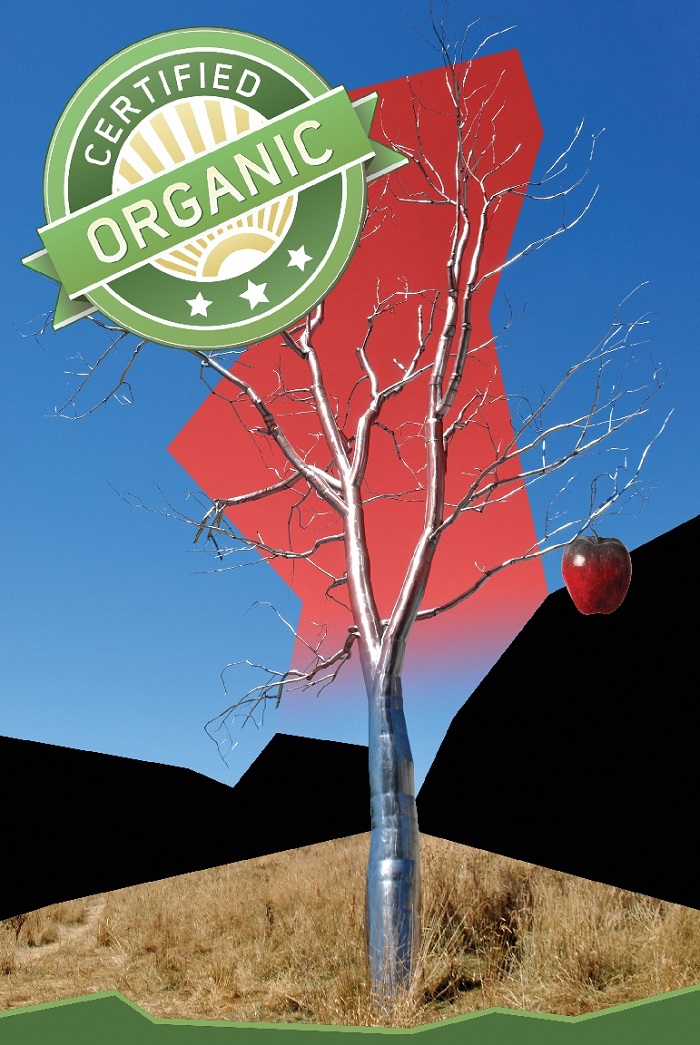
Okay, so I’ve now placed myself on the Bascule and secured my own neck with the Lunette for you—I’m ready for the slice of your guillotine. Before you pull the blade’s release handle, though, grant an already-condemned writer, guilty of apostasy against the Church of Organic, the reassurance that you will at least ask and consider why it is you buy and defend organic food from any supermarket.
This dying wish will, if granted, send me to the Great Beyond with a truly organic smile, because it is a rare thing indeed to find someone willing to truly question (and—gasp—change their minds) what they think they know.
Because I have come to realize the ubiquity of the monetary agenda, I have a hard time, especially in our Instant Gratification society, and because we have devolved into scanners instead of readers (thanks, Google)—with groups, trends, and movements.
And the organic movement tops my list as one of the most annoying, self-righteous, classist, and holier-than-thou, trusting and amaurotic crusades out there. Like any prominent social movement, information is often buried under a slew of contradictory information, blind belief, and social grandstanding.
More often than not, I’ve come across two types of organic supporters: those that do so because of health reasons and those who believe they are doing the environment a favor; and in most cases, both types argue their points fervently with faith-based generics and tired platitudes, despite the fact there is absolutely no veritable data to support these unwavering beliefs. I will only be talking about former here (maybe I will get to you others in another article).
I am not saying you are gullible; you are not. But consumers as a whole are.
We tend to believe what we’re told, especially if it comes from some “official” source. But it is naïve not to believe in the manipulation of language in advertising for some gain other than our own.
Let’s look at just a few myths and facts about organic products:
Organic produce is healthier than non-organic.
This is categorically false. There is nothing that suggests eating organic has any quantifiable benefits versus eating non-organic. Utah Commissioner of Agriculture, LuAnn Adams, fully agrees and even believes in the subjectivity of what healthier means. She said, “It depends on your definition of healthier. Nutritionally, no, it is the same as conventional products … This is a personal choice of what healthier means.”
Synthetic pesticides aren’t used in the production of organic food.
Yes … and … no. The USDA’s list of allowable substances in organic production is extensive; however, it is replete with exceptions and wildly abstract and subjective nouns such as “need,” leaving the inclusion of certain synthetic pesticides open ended, which often, are allowed case by case.
Natural pesticides are less harmful than synthetic pesticides.
The only reason this sounds like a no-brainer is because of the arbitrary value we bestow upon words. When we hear “natural” or “organic” we have been indoctrinated to hear “nature,” which we equate to being “healthier.” Likewise, when we hear “synthetic,” our default is to believe “it must be bad, it’s not natural.” There is some truth in all this, but the best way to deceive and profit is to deliver that deception wrapped neatly in a blanket of truth.
The irony is, these terms are, in themselves, a synthetic construct. The foundation, the rules of organics have been set by agreed upon, allowed principles and techniques by people who aren’t you. And maybe I’m alone here, but any industry that rakes in some $40 billion a year, with governmental oversight, well … it makes one wonder.
These are just a few researchable examples. Perhaps Commissioner Adams is right, though. Maybe, if you try hard enough and make yourself believe organic food is an overall better choice, then maybe it is.
But one thing I know for sure is that if you are buying anything from a grocery store, regardless of organic labeling or certifications, odds are you aren’t getting what you think you’re getting.
If the nutrition and the quality of the food you eat is a concern for you, if sustainable practices are of any import to you, the absolutely only way you can ever know for sure is to develop a relationship and buy it from the farmer directly.
Ok, now you can pull that lever. Off with my head!
[Have an opinion? Facts? Comments? Want to be interviewed on this topic? Please send comments/inquiries to lewisutahstories@gmail.com, and if I get enough, I will respond to them in a follow-up article.]





